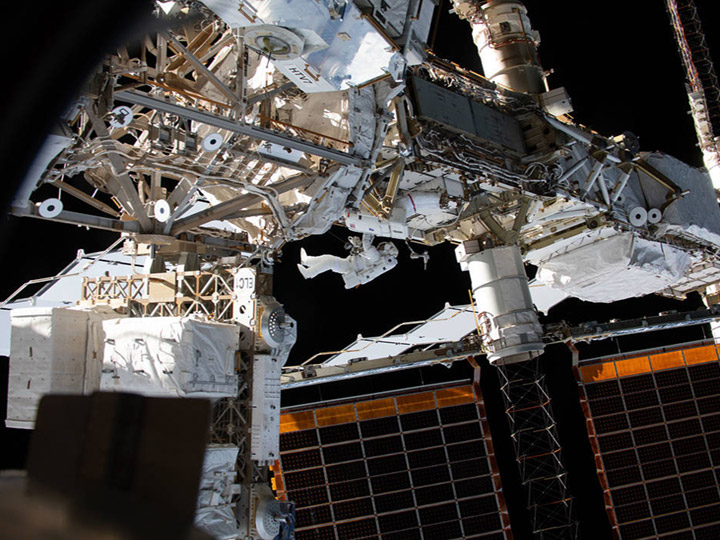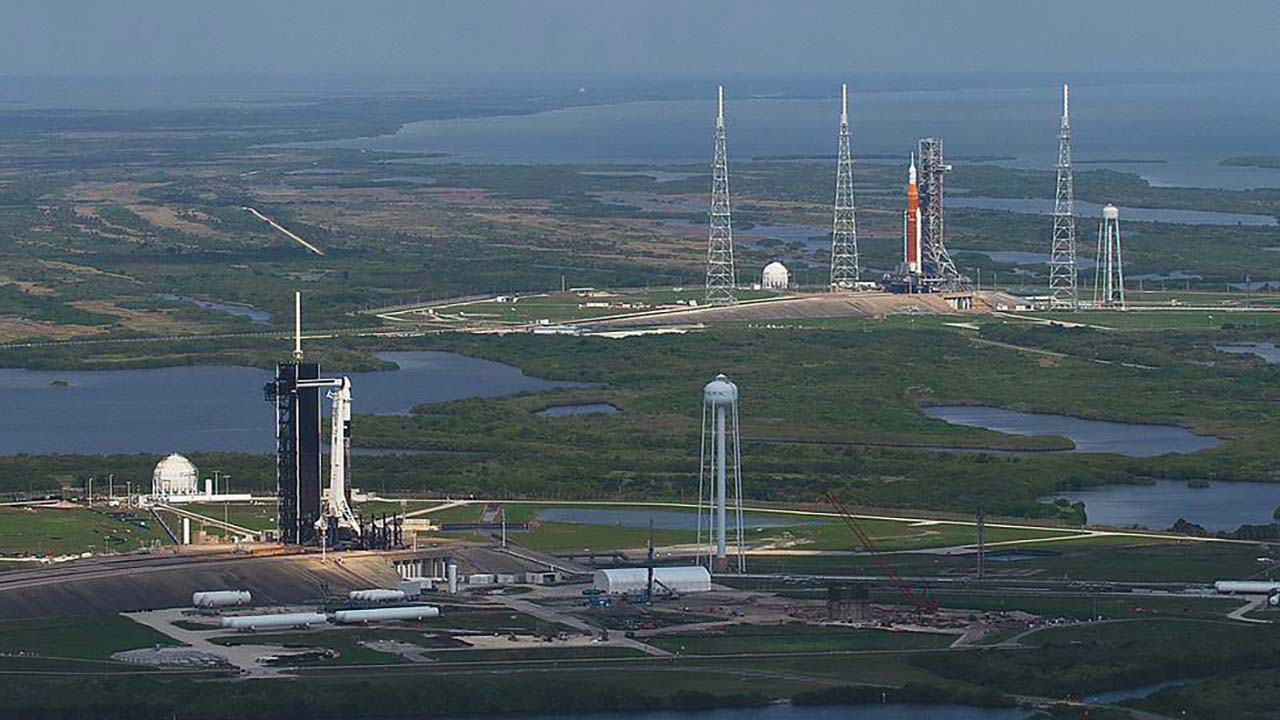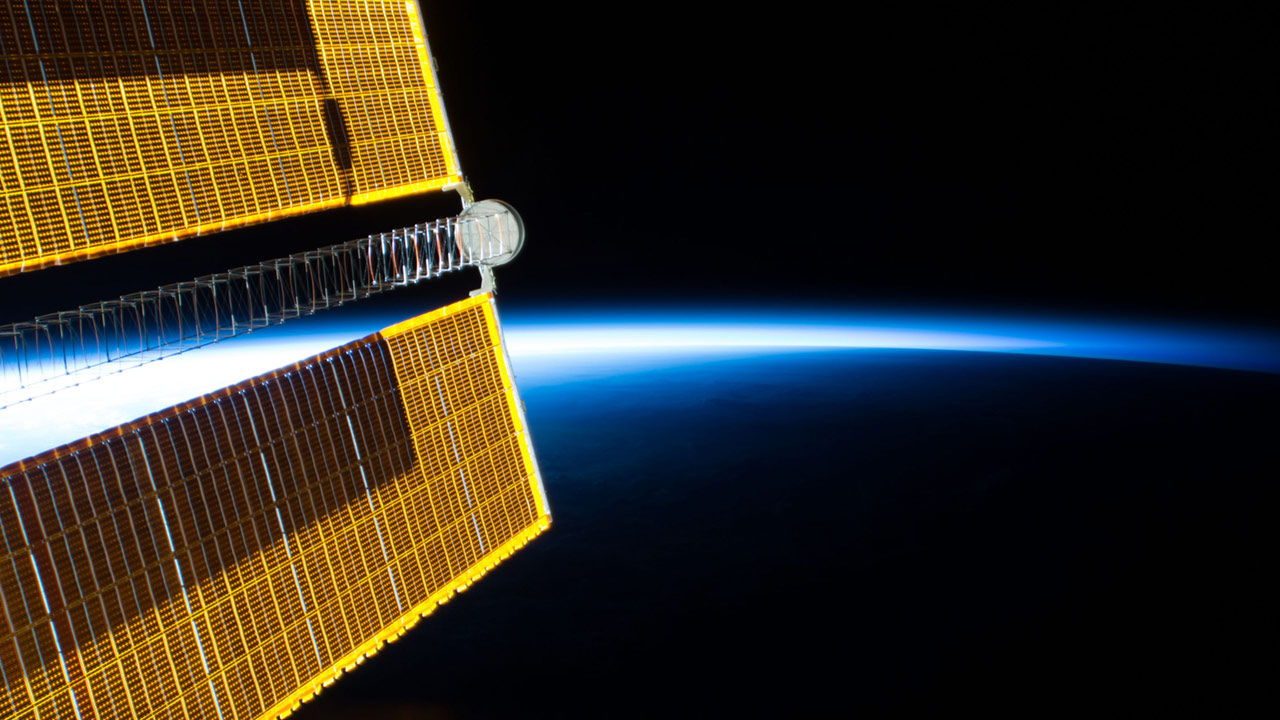Fifty years ago this July, a massive rocket launched from Cape Canaveral, Florida, carrying three NASA astronauts who would make history. Apollo 11 inspired our nation with the excitement of the space race and with the engineering achievements that made it possible for humans to set foot on the moon. In commemoration of this remarkable event, the International Space Station (ISS) U.S. National Laboratory has partnered with the John F. Kennedy (JFK) Library Foundation to reignite that inspiration in today’s classrooms through JFK Space Labs, a program that provides access to ISS National Lab educational activities.
Unlike the futuristic space exploration of the 1960s, low Earth orbit today is becoming rapidly democratized. Commercial launch vehicles, constellations of tiny satellites, and technologies from dozens of countries now fill Earth’s orbit. This extends into educational initiatives. While JFK’s ambitious lunar goals inspired the next generation, today’s space economy engages youth in hands-on, experiential learning.
Sign up to get a JFK Space Lab in your school or to sponsor a school in your community!
JFK Space Labs imbue the excitement of space into activity guides, experiments, equipment, and program resources designed by experienced professionals in science, technology, engineering, and mathematics (STEM) education. Many of these programs are free or low cost, and all are associated with Space Station Explorers, the education arm of the ISS National Lab. Millions of students participate in these programs, and JFK Space Labs will bring easy access into even more classrooms nationwide.
JFK Space Labs: The Origin Story
The JFK Library Foundation partnership leverages the success of several ISS National Lab educational initiatives that have come to fruition synergistically over the past seven years—namely, establishment of the Space Station Explorers brand, growth of the ISS National Lab Space Station Ambassador network, enhanced web-based resources for educators, and several high-visibility partnerships.
In 2012, the ISS National Lab, newly under non-government, nonprofit management, began to build partnerships with schools and educational organizations interested in bringing U.S. STEM achievements to the forefront of the global market. By 2014, dozens of education and outreach initiatives reached hundreds of thousands of U.S. students and educators with hands-on learning activities associated with the ISS National Lab. Today, millions of students participate in 23 active programs, many of which launch student-designed experiments to the ISS.
“Since I was four years old, I watched rockets launch and all of the science being done in space, and I always wanted to be a part of it,” said Anna-Sophia Boguraev, student scientist. “Then suddenly, I was part of it—I was standing there with a rocket launching three miles away going to the ISS, and it had my experiment on it!”
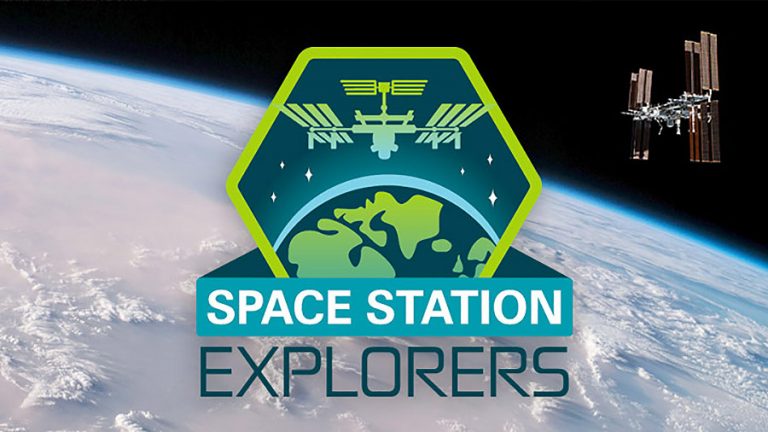
This impressive growth in student engagement was paralleled by a shift from viewing ISS National Lab student opportunities as a collection of activities to managing them as an integrated program that creates a community of learners and explorers. The Space Station Explorers concept was born during an ISS National Lab STEM Summit in 2015, where 34 experts in STEM education fields outlined the power of a unified approach to maximize program growth and external funding. The brand was unveiled at the 2016 USA Science and Engineering Festival to more than 365,000 students and STEM enthusiasts in attendance.
“The ISS National Lab cultivates success for students around the country in a number of ways,” said DreamUp Co-founder and Chief Executive Officer Carie Lemack. “They help to amplify student voices via their magazine Upward, their website and blog, pre-launch visitor activities, and via participation in contests, particularly those with sponsors such as Marvel. Events such as the Space Station Explorers yearly meeting are also important opportunities for those supporting students alongside the ISS National Lab to meet, collaborate, and improve.”
Space Station Explorers: A Unifying Brand
The Space Station Explorers brand allows the ISS National Lab to increase national distribution of STEM opportunities from disparate programs and aids in building a powerful partner network that includes not only Marvel and the JFK Library Foundation but also Boeing, the Boy Scouts of America, Challenger Learning Centers, National Geographic Learning, Nickelodeon, and Boys and Girls Clubs, among others. Add to this list Raytheon and TD Bank—all of which are sponsoring inaugural JFK Space Labs within schools nationwide.
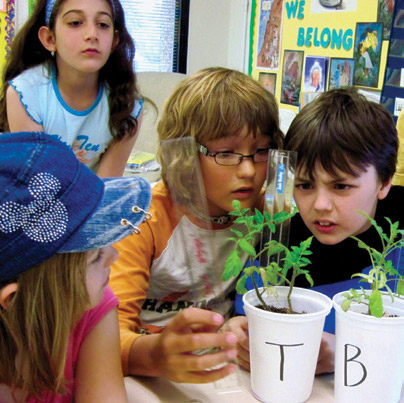
Elementary students analyze plant growth through the Tomatosphere program.
Media Credit: Image courtesy of Tomatosphere
Such high-profile partnerships allow the nonprofit ISS National Lab to secure third-party sponsorships for student activities and elevate overall engagement by leveraging big-brand credibility and expertise. Because of large-scale efforts like these, even programs that were highly successful before partnering with the ISS National Lab have found new success within Space Station Explorers. For example, the Tomatosphere program increased participation by 55% in their first year within Space Station Explorers, despite their 15 years of previous successful operations.
Outreach to promote Space Station Explorers is multifaceted. The ISS National Lab STEM team and partner organizations attend dozens of events each year, such as the National Science Teachers Association annual meeting, the American Association for the Advancement of Science Family Science Days, and Destination Imagination. On the other end of the spectrum, grassroots efforts by ISS National Lab Space Station Ambassadors (empowered educators that receive training and exclusive access to program resources) began in 2013 and now reflects the work of more than 600 dedicated volunteers. Perhaps most critically, digital resources include program databases that are searchable by age group, cost, and other key features.
“We have seen students get more engaged with STEM and school in general as a result of all of the programs available through Space Station Explorers partners,” said Quest Institute Chief Technology Officer Danny Kim. “The ability for students to be recognized through awards and speaking opportunities at conferences, highlighting their experiments, gives them the motivation and recognition that makes all of our programs stand out.”
Initiatives, Unite! The Final Steps Toward Success
Organically developed tools and programs round out efforts related to the Space Station Explorers and Space Station Ambassador initiatives—for example, a STEM Kit designed by ISS National Lab staff embraces the concept of “dollar-store science,” with free activities that align with national education standards but involve only minimal-cost supplies. The Kit, recently released, evolved from a 2016 educator resource guide developed in collaboration with IMAX as a supporting resource for the IMAX film A Beautiful Planet. The new iteration of the Kit further elucidates connections with Common Core and Next Generation Science Standards and is part of the introductory welcome package for JFK Space Labs.
Learn more about the STEM Kit or download a digital copy today!
These startup activities of the ISS National Lab fused to make the JFK Space Labs possible, beginning in early 2017 when the ISS National Lab first envisioned a prototype Space Lab as a physical area, akin to a biology or chemistry lab, in which students would experience learning activities associated with a blend of resources from the 23 Space Station Explorers programs. Several Space Station Ambassadors tested the pilot concept, including an Ambassador from Ohio to whom the ISS National Lab granted funding for support of participation in paid programs.
Without these synergistic efforts years in the making, the JFK Library Foundation may not have been able to see the sheer power of nearly two dozen groups collaborating under a single brand—let alone the opportunity to partner and turn a pilot program into a nationwide initiative. The foundation of early ISS National Lab STEM successes has paved the way for this partnership to scale up classroom Space Labs as a vehicle for honoring the inspirational heritage of JFK and promoting local sponsorship of STEM learning in schools.
“The best way to commemorate Apollo 11 is not by looking into the past but instead into the present,” said ISS National Lab STEM Education Manager Dan Barstow. “Follow the path from Apollo to Skylab, the Space Shuttle, and the ISS, and you see the consistent excitement of space, the power of bold visions, and the confidence of the can-do spirit. JFK Space Labs are a testament to this continuing legacy.”
Connecting Past Skylab Students With Current ISS National Lab Students at the ISS Research and Development Conference
Interestingly, the first high school students to do experiments in space worked with NASA and the Skylab space station in 1973. The ISS National Lab has tracked down those students, who are now in their sixties, and has invited them to share their experiences and the long-term impact on their lives, felt even now, 46 years later. As part of the 2019 ISS Research and Development conference in Atlanta, Georgia, the ISS National Lab will host a panel consisting of former Skylab high school students as well as students who have more recently conducted experiments on the ISS National Lab, each reflecting on the power of the experience and real or anticipated impact on their lives.
“Our students have told us the significant influence that doing experiments on ISS has on their self-concepts, their interest in STEM, their anticipated studies, and their vision for a career path,” Barstow said. “We are truly changing these students’ lives, and the impact of the Apollo and Skylab era certainly lives on.”




